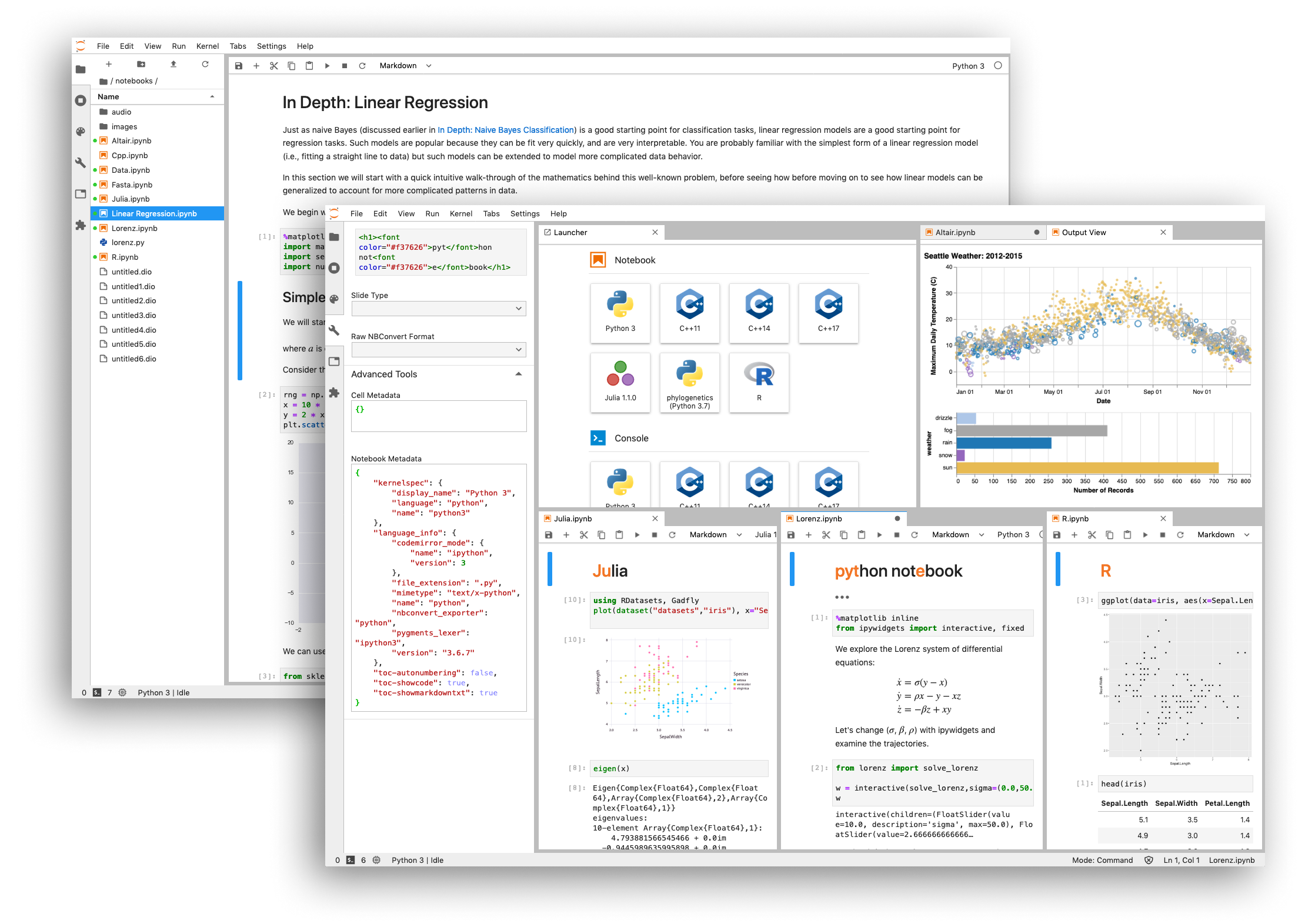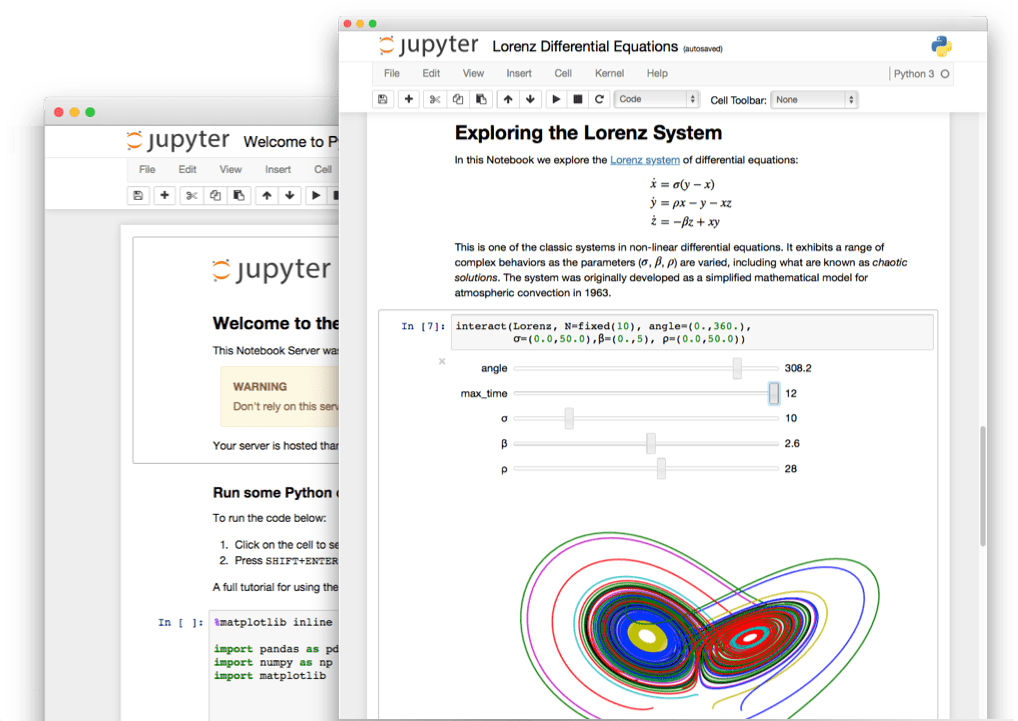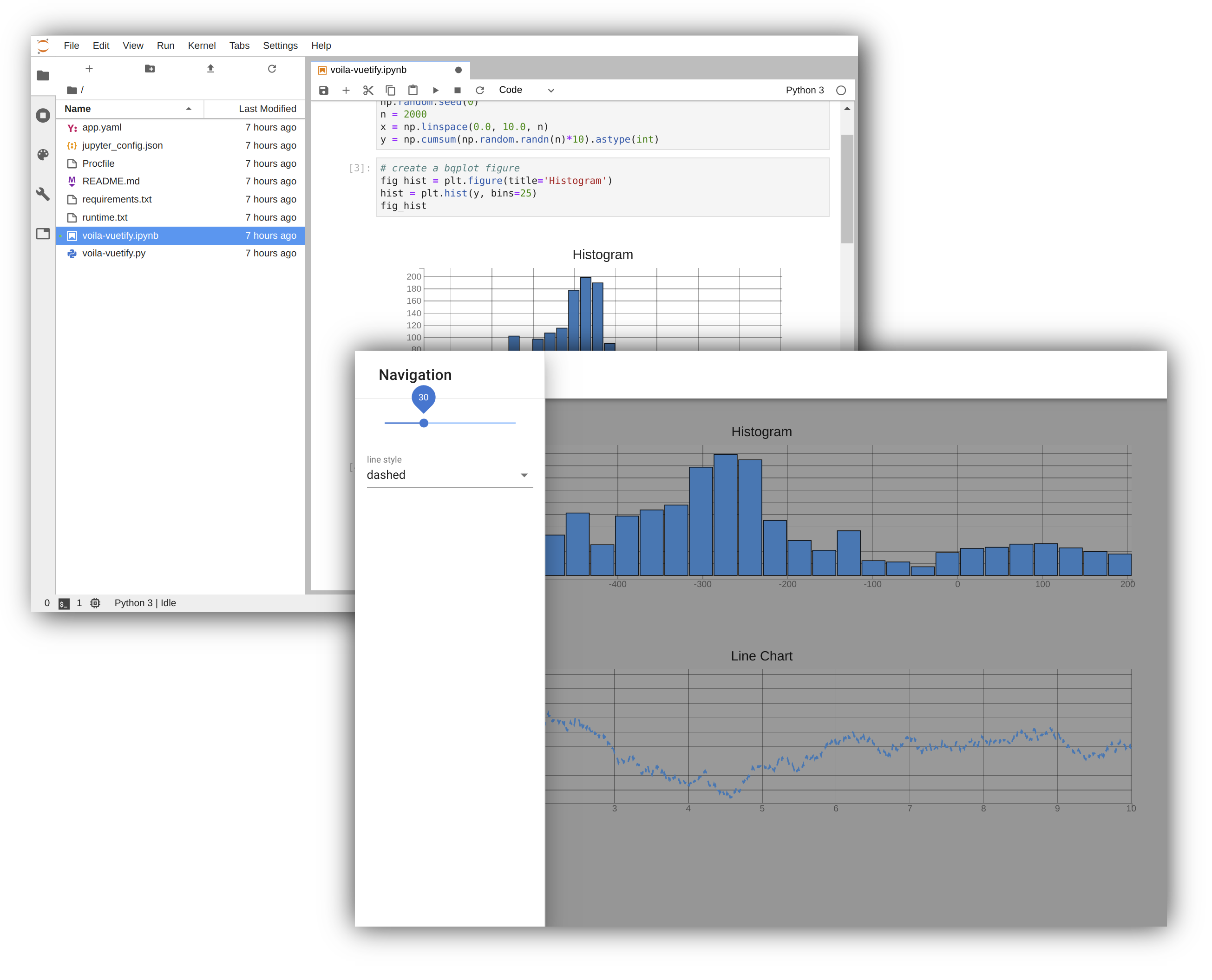Project Jupyter exists to develop open-source software, open-standards, and services for interactive computing across dozens of programming languages.

JupyterLab 1.0: Jupyter’s Next-Generation Notebook Interface
JupyterLab is a web-based interactive development environment for Jupyter notebooks, code, and data. JupyterLab is flexible: configure and arrange the user interface to support a wide range of workflows in data science, scientific computing, and machine learning. JupyterLab is extensible and modular: write plugins that add new components and integrate with existing ones.

The Jupyter Notebook
The Jupyter Notebook is an open-source web application that allows you to create and share documents that contain live code, equations, visualizations and narrative text. Uses include: data cleaning and transformation, numerical simulation, statistical modeling, data visualization, machine learning, and much more.
Language of choice
Jupyter supports over 40 programming languages, including Python, R, Julia, and Scala.
Share notebooks
Notebooks can be shared with others using email, Dropbox, GitHub and the Jupyter Notebook Viewer.
Interactive output
Your code can produce rich, interactive output: HTML, images, videos, LaTeX, and custom MIME types.
Big data integration
Leverage big data tools, such as Apache Spark, from Python, R and Scala. Explore that same data with pandas, scikit-learn, ggplot2, TensorFlow.
A multi-user version of the notebook designed for companies, classrooms and research labs
Pluggable authentication
Manage users and authentication with PAM, OAuth or integrate with your own directory service system.
Centralized deployment
Deploy the Jupyter Notebook to thousands of users in your organization on centralized infrastructure on- or off-site.
Container friendly
Use Docker and Kubernetes to scale your deployment, isolate user processes, and simplify software installation.
Code meets data
Deploy the Notebook next to your data to provide unified software management and data access within your organization.

